 Petzlover
Petzlover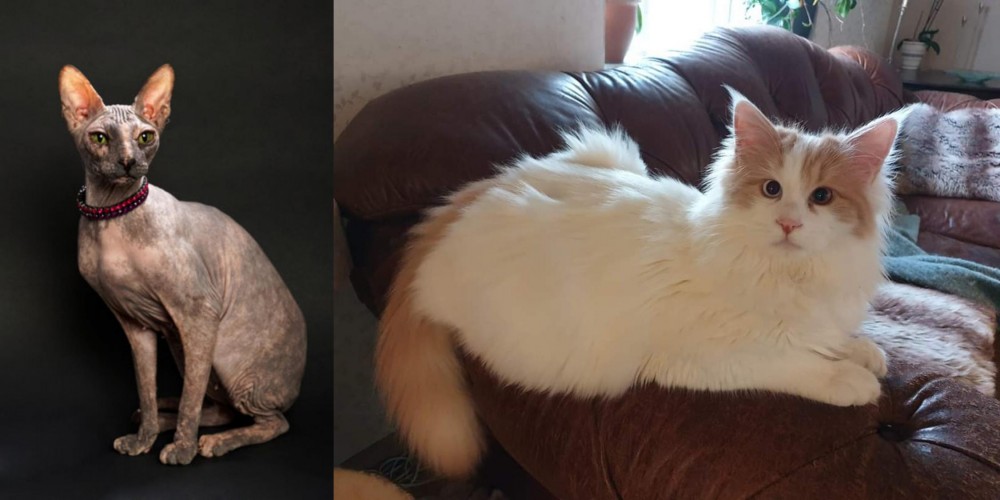 Don Sphynx is originated from Russia but Turkish Van is originated from Turkey. Both Don Sphynx and Turkish Van are having almost same weight. Both Don Sphynx and Turkish Van has same life span. Both Don Sphynx and Turkish Van has same litter size. Both Don Sphynx and Turkish Van requires Low Maintenance.
Don Sphynx is originated from Russia but Turkish Van is originated from Turkey. Both Don Sphynx and Turkish Van are having almost same weight. Both Don Sphynx and Turkish Van has same life span. Both Don Sphynx and Turkish Van has same litter size. Both Don Sphynx and Turkish Van requires Low Maintenance.
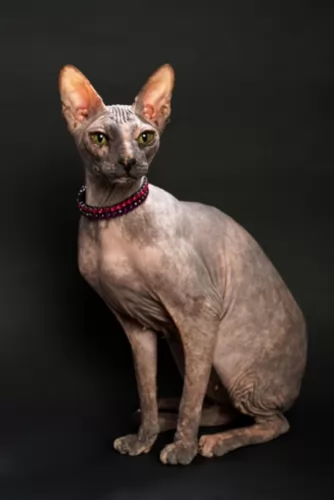 Of Rusian origin, the Don Sphynx is an interesting looking, hairless breed. The cat came about in 1987 when a hairless cat was seen in Rostov-on-Don, a Russian city.
Of Rusian origin, the Don Sphynx is an interesting looking, hairless breed. The cat came about in 1987 when a hairless cat was seen in Rostov-on-Don, a Russian city.
Cat breeder Elena Kovaleva rescued the kitten and it was at about 4 months of age that the kitten began to lose its hair. Later it was mated with a local tomcat and produced kittens which became the founding stock of the Donskoy breed.
The cat breed was recognized by the World Cat Federation in 1997 as well as the International Cat Association later on in 2005.
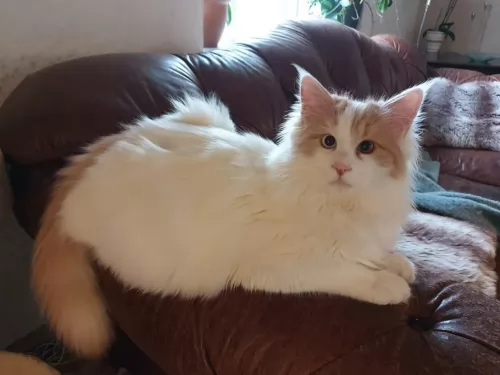 Hailing from Turkey, the Turkish Van was brought to the UK in 1955 by 2 British women, Laura Lushington and Sonia Halliday.
Hailing from Turkey, the Turkish Van was brought to the UK in 1955 by 2 British women, Laura Lushington and Sonia Halliday.
These cats were used as the foundation stock of the breed. They were brought to the United States in 1982 and accepted into championship with the Cat Fanciers’ Association in 1994.
They are a very rare breed and no other breed is allowed to be mixed into the cat's breeding schedule. All registered Turkish Van cats can have their ancestry traced back to the imported cats of Laura Lushington.
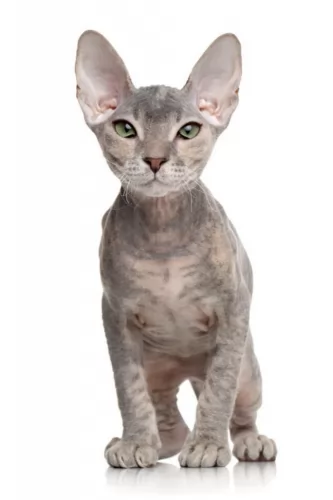 The Don Sphynx is a medium-sized cat known for its large ears and its long, webbed toes.
The Don Sphynx is a medium-sized cat known for its large ears and its long, webbed toes.
Their weight can be anything from 3 to 6 kg It’s a hairless cat but has different skin types that come in different shades – Flock, Rubber Bald, Velour and Brush.
The cat has this dominant hair loss gene that causes the coat they have at birth to thin and fall out. In fact, on close inspection, you’ll find that the cat isn’t entirely hairless but has a very fine layer of fuzz. The skin can be oily and the cat requires bathing fairly regularly.
These particular cats are also more susceptible to the cold and to sunburn. The legs of this cat are long and slender and they have a bit of a bow-legged appearance to them, but this is because of the barrel chest. The tail is long and hard.
These rare cats make excellent pets because they have all the characteristics needed that make them companionable. They are loving, companionable and playful. These are also intelligent, exploring cats which means you’ll need to provide them with games and toys that can keep them occupied.
They’re good with children and other pets and are even good for first-time cat owners. Breeders of these cats will tell you that they are even-tempered and amicable. They are gentle towards children and other pets.
Most of the time the cat has a calm demeanor but is highly sociable. As an entertainer too – he will do anything to get a laugh out of his human family.
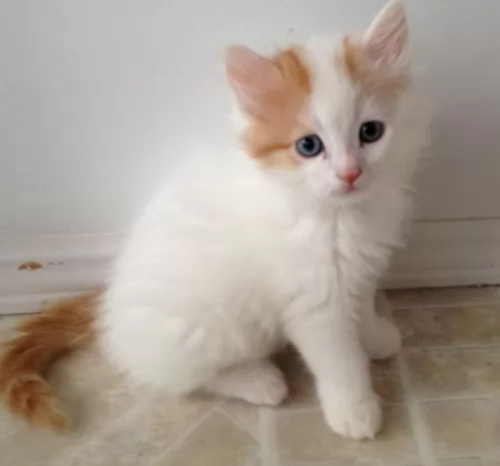 This is a medium to large-sized cat weighing roughly 3 to 8kg. It’s a semi-long-haired domestic cat breed that was actually developed in the United Kingdom with a selection of cats from Turkey.
This is a medium to large-sized cat weighing roughly 3 to 8kg. It’s a semi-long-haired domestic cat breed that was actually developed in the United Kingdom with a selection of cats from Turkey.
The breed is distinguished by the Van pattern where the color is restricted to the head and tail. So the cat is white with color on the head and the tail. The Turkish Van has no undercoat and the cat has a sleek appearance.
The cat is quite long and its back legs are slightly longer than its front legs. The paws are large and they are strong jumpers.
These cats are playful, active, and independent and they are also excellent hunters. They are affectionate and form strong bonds with their human families.
They get on well with kids as well as with other pets. Energetic and agile, they love to leap up onto high places. For a cat, they also have this fascination with water and may well follow their human into a swimming pool or lake.
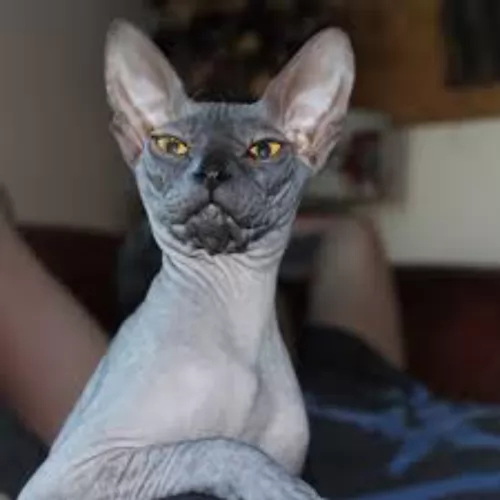 The sphynx cat is an energetic feline that absolutely loves the attention of its human owners. In fact, he will even be willing to show off to get some kind of reaction from his humans.
The sphynx cat is an energetic feline that absolutely loves the attention of its human owners. In fact, he will even be willing to show off to get some kind of reaction from his humans.
This is certainly a cat that has a sense of humor. They’re friendly, loving cats who like to even follow you around the house to be where you are. They are loving and loyal, curious, intelligent and active.
It’s a hardy breed and you won’t have many health issues to contend with. We know that they are prone to skin conditions and periodontal disease so watch out for these with this amazing, but unusual looking cat.
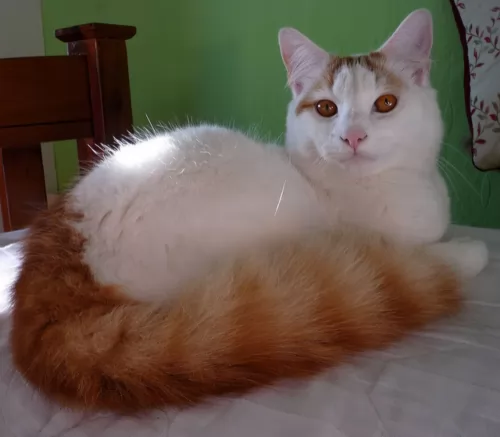 Lively, social, and intelligent, the Turkish Van is going to make you a wonderful pet and companion.
Lively, social, and intelligent, the Turkish Van is going to make you a wonderful pet and companion.
He is an active cat and will require you to play with him and provide some form of exercise for him.
He likes to leap up onto perches so getting him a climbing tree will serve him well as he is a cat that loves perching on high up places.
These cats are also low maintenance which simply adds to them being such perfect pets for single people, couples, families and seniors, just so long as he is provided with lots of love and care.
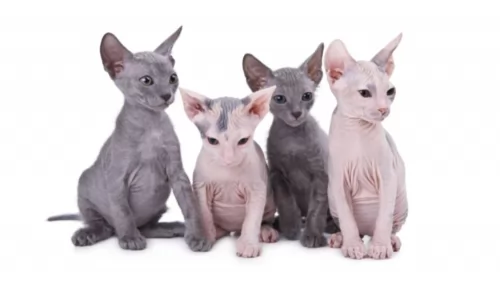 Hairless cats are prone to teeth and gum issues, and every Don Sphynx owner needs to regularly check their cat’s teeth as bad teeth can cause a lot of problems with health as well as discomfort with the teeth.
Hairless cats are prone to teeth and gum issues, and every Don Sphynx owner needs to regularly check their cat’s teeth as bad teeth can cause a lot of problems with health as well as discomfort with the teeth.
This cat breed is also fairly prone to skin problems. You will need to watch him for rashes and fungal infections. Remember, that this strange-looking cat also needs vaccinations and de-worming as well as regular veterinary health checks.
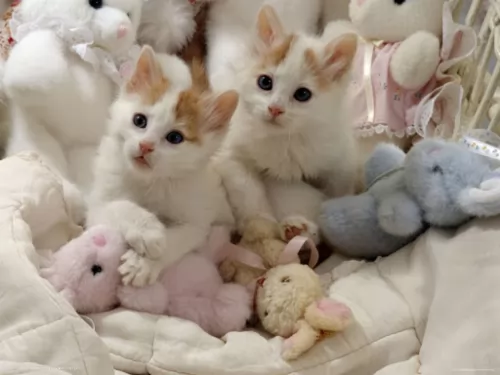 Your Turkish Van counts on you to ensure his health and wellbeing. This will ensure he lives a long and healthy life.
Your Turkish Van counts on you to ensure his health and wellbeing. This will ensure he lives a long and healthy life.
Obesity is a major disease that contributes to many illnesses in cats. Excess weight is one of the factors for the development of arthritis and diabetes as well as some life-threatening diseases.
All kinds of parasites can invade your Turkish Van’s body. . Many types of parasites can be detected with a fecal exam, so a trip to your vet may be necessary.
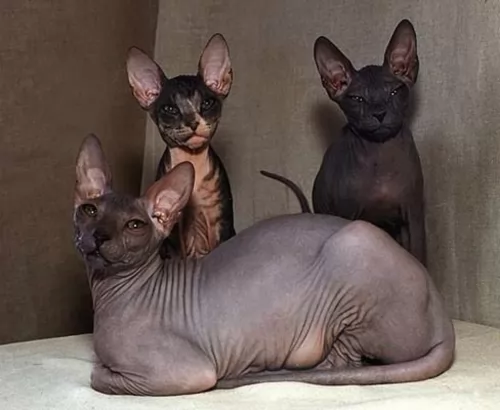 In spite of this being a hairless cat, it still requires frequent grooming, and yet you have to be careful that you don’t allow the cat to be bathed too often either.
In spite of this being a hairless cat, it still requires frequent grooming, and yet you have to be careful that you don’t allow the cat to be bathed too often either.
Have your cat spayed or neutered to avoid kittens that you don’t want. This is beneficial for the cat’s health.
This is a unique cat and when it comes to food, if you can afford it, go for the very best food there is. Good food contributes to good health and this cat is a carnivore and requires food high in meat protein.
Of course, it requires other nutrients and the best commercially manufactured cat foods will have a list of ingredients in them that are important to your cat’s health.
Of course, with diet, there are other important considerations to think about and one of these is the right quantity of food to maintain the cat’s ideal weight. Too much weight gain can put pressure on the cat’s joints and contribute to health problems.
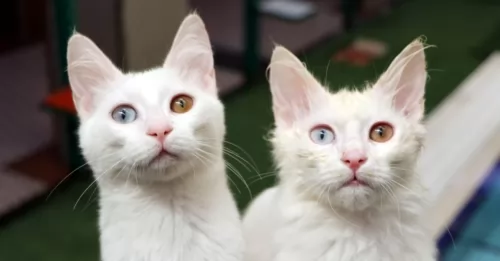 One of the most important things with a cat is diet. The cat is a carnivore. Watch his diet, and make sure he gets plenty of meaty food.
One of the most important things with a cat is diet. The cat is a carnivore. Watch his diet, and make sure he gets plenty of meaty food.
Check with your vet if you aren’t sure how to feed your cat. There must always be a constant supply of fresh, cool water available and both food and water bowls must be washed regularly.
Regularly brush your cat’s coat gently and at the same time check the body over for any unusual lumps. If you discover a new lump, get your cat to the vet.
Be sure to schedule in your cat’s vaccinations as without these your cat can die from some of the more dangerous ones.
Another wise move, if at all possible, is to sign up for pet health insurance as then you won’t dread it financially when your vet requests medical tests be done on your cat.
There are simple things you can do to ensure the longevity of your beloved cat. Good food, exercise, fresh water, and plenty of love and attention.
Turkish Vans can have problems with their teeth. Teeth brushing can be massively traumatic and uncomfortable for your pet, but the best diet and vet care will ensure healthy teeth.
Cats are meticulous about hygiene so ensure the litter box is kept clean. Remove the cat’s feces every single day.